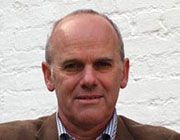Be the best boss, not the worst
It’s often said that people leave bosses, not their organisations. Reading through Executive Grapevine’s daily post today, there was a focus on ‘worst bosses’.
To be honest, I think there is a leadership journey towards excellence that all leaders are on. Born or made? Who knows?
But I do believe that high quality executive coaching can make all the difference. I highlight four areas that leaders focus on to help them and their team(s) achieve their goals in a way that boosts morale. These are to (1) focus on outcomes, (2) focus on people, (3) create a great environment and (4) be your authentic best.
Through a trusting relationship with an effective, authentic and responsible coach, the leader can explore these themes dynamically, effectively and safely. After the coaching sessions, the leader can then step with greater positivity into the future. Getting the best out of everyone in the team, in a dynamic inclusive manner, makes a real difference to each team member, to the team and to the business.
It’s what I have always set out to achieve coaching leaders for the last 20 years. It’s people who enable performance, as good leaders instinctively know.
The right tool for the job
We have been using Emotional Intelligence as a profiling tool for more than twelve years and find it invaluable in helping clients as it provides them with feedback on how they are handling their work and lives on a day to day basis.
The good news is that it has recently been enhanced and I was lucky enough to be in the first group of UK practitioners to be accredited by Canadian test developers Multi-Health Systems Inc. I like the new version, EQ-I 2.0, because, as with the former model, it doesn’t label people but it does explore those subtle differences in how they function, particularly when an individual limit themselves through their behaviour with others.
When I conduct profiles using EQ-i 2.0 I find that everyone presents a range of differences in their scores. For example, their problem solving skills may be higher than their empathy for others. By raising awareness of this they are better able to understand themselves and make often slight but significant differences in their approach which helps them on their professional and personal journeys.
